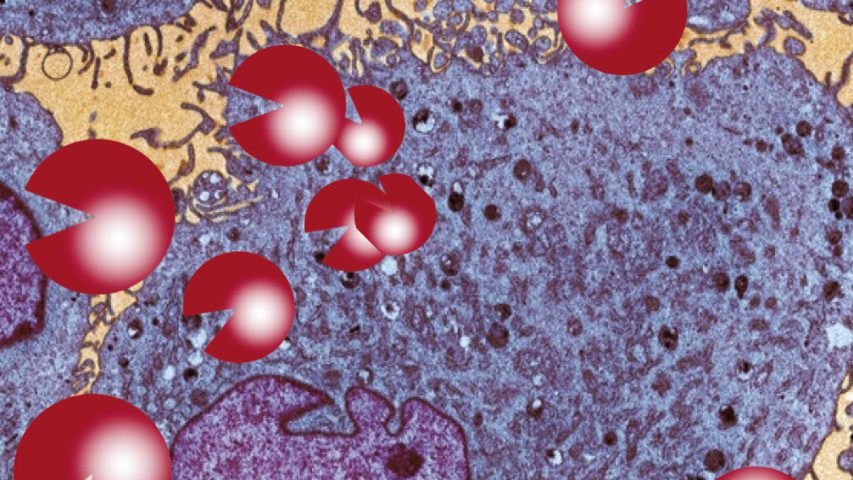- Have any questions? Contact us!
- info@dr-rath-foundation.org

Micronutrients inhibit specific enzymes crucial to tumor invasion and metastasis in adult sarcomas
October 10, 2013
HIV/AIDS: Dr. Rath was RIGHT!
December 3, 2013Micronutrients inhibit growth and inflammation factors in human leukemia cells

A new scientific publication from the Dr. Rath Research Institute, now available in the Experimental Oncology journal, increases our understanding of how micronutrients can work in leukemia, a very aggressive blood cancer.
The study was conducted on human cell line U-937 which is widely applied in cellular studies of myeloid leukemia. This type of cancer affects not only white blood cells, but also red blood cells and platelets. We investigated the key antitumor effects of micronutrients on these cells by measuring their effects on: cell growth, secretion of matrix metalloproteinase (MMP)-9 (a facilitator of cancer invasion and metastasis), invasion of leukemia cells in connective tissue and induction of cancer cell death (apoptosis). In addition, we studied the effect of micronutrients on the expression of cyclooxygenase (COX)-2 – an enzyme responsible for the formation of biological mediators involved in inflammation and cancer.
The results showed that MMP-9, elevated levels of which were found in serum and on the cell surface in the monocytic form of leukemia, was effectively inhibited by micronutrients (by up to 58%) resulting in decreased invasive capacity of these cells. In fact, micronutrients could inhibit leukemia cells penetration through a connective tissue model (Matrigel) by 68% at 100 μg/ml, 97.6% at 250 μg/ml and 100% at 500 μg/ml. Micronutrients used at low concentrations (100 μg/ml) induced slight apoptosis in these cancer cells, while a more pronounced cell death was observed at 500 μg/ml and 1000 μg/ml nutrient concentrations. Micronutrients significantly inhibited leukemia cell growth by 42% at 500 μg/ml and by 55% at 1000 μg/ml concentrations.
A critical process in neoplastic growth and progression in solid and hematological cancers is inflammation and angiogenesis (the formation of new blood vessels from existing ones). The inducible enzyme COX-2 is an important mediator of both angiogenesis and tumor growth; overexpression of COX-2 has been reported in various hematological cancer models, such as in Burkitt’s lymphoma (RAJI) and acute promonocytic leukemia model (U937). In this study, we demonstrated that COX-2 expression can be effectively inhibited by micronutrients in a dose-dependent fashion.
These results provide further confirmation of the universal effects of micronutrients in controlling key mechanisms of cancer – demonstrated here in acute myeloid leukemia, a common type of cancer in adults and children.
Inhibition of growth and expression of inflammation mediators in human leukemic cell line u-937 by a nutrient mixture
M.Waheed Roomi, Tatiana Kalinovsky, Nusrath W. Roomi, Matthias Rath and Aleksandra Niedzwiecki
Dr. Rath Research Institute, Cancer Division, Santa Clara, CA, USA.
Experimental Oncology 2013; 35(3): 180-186


